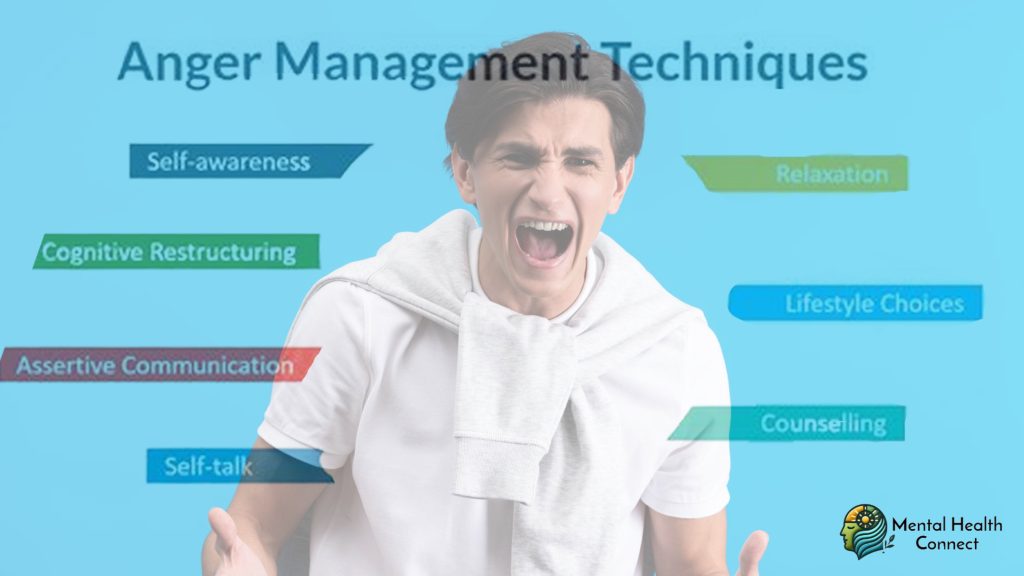What to Expect from Anger Management Treatment: A Comprehensive Guide

Introduction
If you are struggling with controlling your emotions, seeking treatment for anger management can be a transformative step. Anger, when left unchecked, can negatively impact relationships, careers, and personal well-being. However, anger management programs offer effective tools to help individuals regulate their emotions, improve communication, and develop a greater sense of control over their reactions.
Understanding Anger Management Treatment

Anger management treatment is a structured program designed to help individuals recognize their triggers, learn coping strategies, and implement healthier ways to express their emotions. Unlike common misconceptions, anger management is not about suppressing anger but about channeling it constructively.
How to Control Anger Immediately

While long-term strategies require consistent practice, there are immediate techniques you can use when faced with intense anger:
- Count to Ten: Taking a moment to pause before reacting can prevent impulsive actions.
- Step Away: If possible, remove yourself from the triggering situation to cool down.
- Use Positive Self-Talk: Remind yourself that you are in control and can handle the situation rationally.
- Practice Mindfulness: Staying present can help reduce emotional overwhelm and increase awareness of your triggers.
How to Control Anger Psychology: The Role of Therapy

Therapy plays a crucial role in how to control anger psychology. Several therapeutic approaches help individuals gain better emotional regulation, including:
- Cognitive Behavioral Therapy (CBT): CBT helps individuals identify negative thought patterns and replace them with constructive ones. It focuses on problem-solving and emotional regulation techniques.
- Dialectical Behavior Therapy (DBT): This therapy integrates mindfulness, distress tolerance, emotional regulation, and interpersonal effectiveness to help manage anger.
- Psychodynamic Therapy: Explores underlying emotional wounds and past experiences that contribute to anger issues.
- Group Therapy:Engaging in group therapy provides support, shared experiences, and feedback from others dealing with similar challenges.
- Medication: While not a first-line treatment, medication may be prescribed in cases where anger is linked to underlying mental health conditions such as anxiety or mood disorders.
Steps in Anger Management Treatment
- Assessment: A professional evaluates the severity of anger issues, underlying causes, and any coexisting conditions.
- Identifying Triggers: Understanding what provokes anger is crucial to developing better responses.
- Developing Healthy Coping Strategies: Individuals learn relaxation techniques, communication skills, and emotional regulation tools.
- Practicing Emotional Awareness: Recognizing the early signs of anger can help prevent escalation.
- Applying Skills in Real Life: Practical application of learned techniques in everyday situations reinforces long-term change.
- Monitoring Progress: Regular follow-ups with a therapist ensure continued success and adjustments as needed.
Benefits of Anger Management Treatment
- Improved Relationships: Learning to control anger leads to healthier interactions with family, friends, and colleagues.
- Better Communication: Expressing emotions assertively rather than aggressively fosters understanding.
- Reduced Stress and Anxiety: Managing anger effectively decreases overall stress levels and contributes to emotional well-being.
- Enhanced Decision-Making: Responding calmly rather than reacting impulsively improves decision-making.
- Greater Self-Confidence: Mastering emotional control fosters a sense of empowerment and self-assurance.
Final Thoughts
Seeking treatment for anger management is a proactive step toward a healthier and more balanced life. Whether through therapy, self-help techniques, or lifestyle changes, learning how to control anger immediately and understanding how to control anger psychology can make a significant difference in personal and professional relationships. Embracing anger management treatment fosters emotional resilience and empowers individuals to navigate life’s challenges with a calm and rational mindset.
-
 How to Support Someone with OCDApril 17, 2025
How to Support Someone with OCDApril 17, 2025 -


Leave a Reply